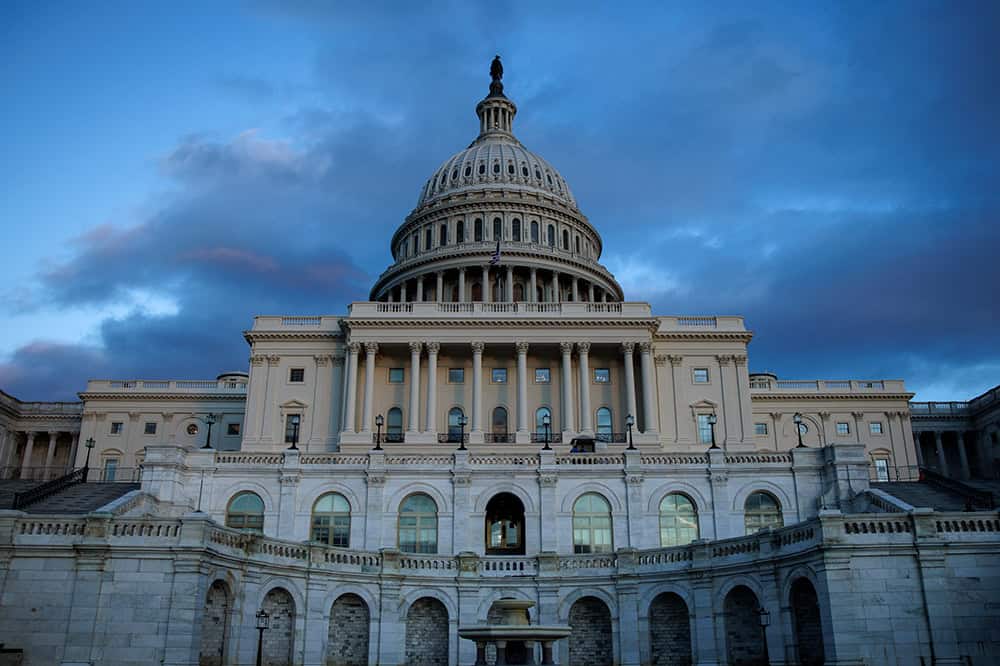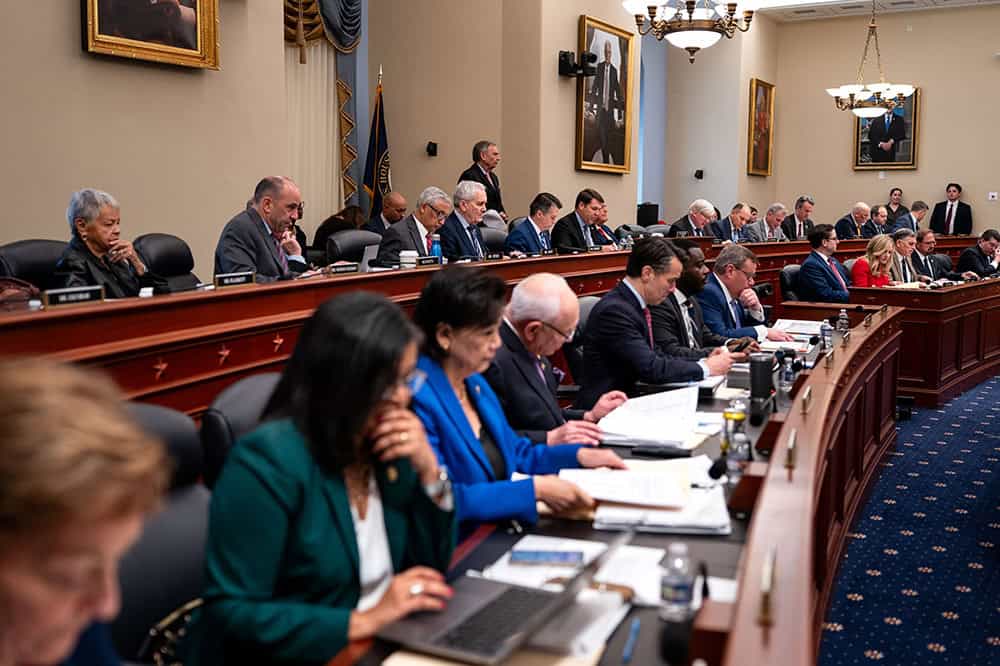Peterson Foundation to Convene Bipartisan Leaders for 2018 Fiscal Summit: Debt Matters
Ninth Annual Fiscal Summit Will Outline Urgent Need for Fiscal Reset following Recent Tax and Spending Legislation
NEW YORK (May 1, 2018) — The Peter G. Peterson Foundation will convene the 2018 Fiscal Summit: Debt Matters on Thursday, May 10, at the Andrew W. Mellon Auditorium in Washington, D.C. As campaigns for the 2018 midterm elections get underway within a rapidly changing policy environment, America’s unsustainable fiscal condition remains a transcendent threat to our collective future. The ninth annual Summit will convene leaders, experts and policymakers from across the political and ideological spectrum to present the urgent need for a fiscal reset, and debate how we can create a sustainable fiscal path for generations of Americans.
As interest rates continue to rise, trillion-dollar deficits return as early as next year, and the national debt is on course to eclipse the size of the economy, our nation will face increased budgetary pressures. Absent a change in course, we will confront fewer public and private investments, less flexibility to counteract future economic crises, and diminishing opportunities for generations of Americans.
2018 Summit participants will include:
- Senator Jeff Flake (R-AZ), Member, Committee on the Judiciary; Member, Committee on Energy and Natural Resources; Member, Committee on Foreign Relations
- Senator David Perdue (R-GA), Member, Committee on the Budget; Member, Joint Select Committee on Budget & Appropriations Process Reform
- Representative Nancy Pelosi (D-CA), House Democratic Leader
- Representative Tom Reed (R-NY), Co-Chair, Problem Solvers Caucus; Member, Committee on Ways and Means
- Representative Derek Kilmer (D-WA), Member, Problem Solvers Caucus; Vice Ranking Member, Committee on Appropriations; Member, Joint Select Committee on Budget & Appropriations Process Reform; Vice Chair, New Democrat Coalition
- Ernest J. Moniz, Co-Chair and Chief Executive Officer, Nuclear Threat Initiative; Chief Executive Officer, Energy Futures Initiative; Former U.S. Secretary of Energy (2013-2017)
- Heather Boushey, Executive Director and Chief Economist at the Washington Center for Equitable Growth
- Terry Dinan, Senior Advisor, Congressional Budget Office
- Robert Doar, Morgridge Fellow in Poverty Studies, American Enterprise Institute
- Simon Johnson, Ronald A. Kurtz (1954) Professor of Entrepreneurship, MIT Sloan School of Management
- Mark Hugo Lopez, Director of Global Migration and Demography, Pew Research Center
- Aparna Mathur, Resident Scholar in Economic Policy, American Enterprise Institute
- Adele Morris, Policy Director of Climate and Energy Economics Project, Brookings Institution
- Deanna Mulligan, President and CEO, The Guardian Life Insurance Company of America
- Steven Rattner, Chairman and CEO, Willett Advisors LLC
- David Wessel, Director, Hutchins Center on Fiscal and Monetary Policy, Brookings Institution; Contributing Correspondent, The Wall Street Journal
| WHAT: | 2018 Fiscal Summit: Debt Matters |
| WHEN: | Thursday, May 10, 2018, starting at 8:45 a.m. |
| WHERE: | Andrew W. Mellon Auditorium 1301 Constitution Ave NW Washington, DC 20240 |
To request press credentials to attend the Fiscal Summit, please email Charlie Vinopal at CharlesVinopal@rational360.com. Space is limited.
Visit www.fiscalsummit.org for more information.
About the Peter G. Peterson Foundation
The Peter G. Peterson Foundation is a nonprofit, nonpartisan organization that is dedicated to increasing public awareness of the nature and urgency of key fiscal challenges threatening America’s future, and to accelerating action on them. To address these challenges successfully, we work to bring Americans together to find and implement sensible, long-term solutions that transcend age, party lines and ideological divides in order to achieve real results. To learn more, please visit www.pgpf.org.
Further Reading
Long-Term Budget Outlook Leaves No Room for Costly Legislation
As lawmakers consider costly legislation to extend expiring tax provisions this year, CBO’s latest projections serve as a warning that our fiscal outlook is already dangerously unsustainable.
Republicans Considering Costly Tax Cut Proposals
Leaders in Congress and the Administration have outlined a broad package of tax cuts that could total $9.1 trillion.
Moody’s Warns Recent Policy Decisions Worsen U.S. Fiscal State, Maintains Negative Outlook Rating
Moody’s says that the United States is in fiscal deterioration, warning that government policy decisions in the near term could contribute to higher interest rates and worsening national debt.


